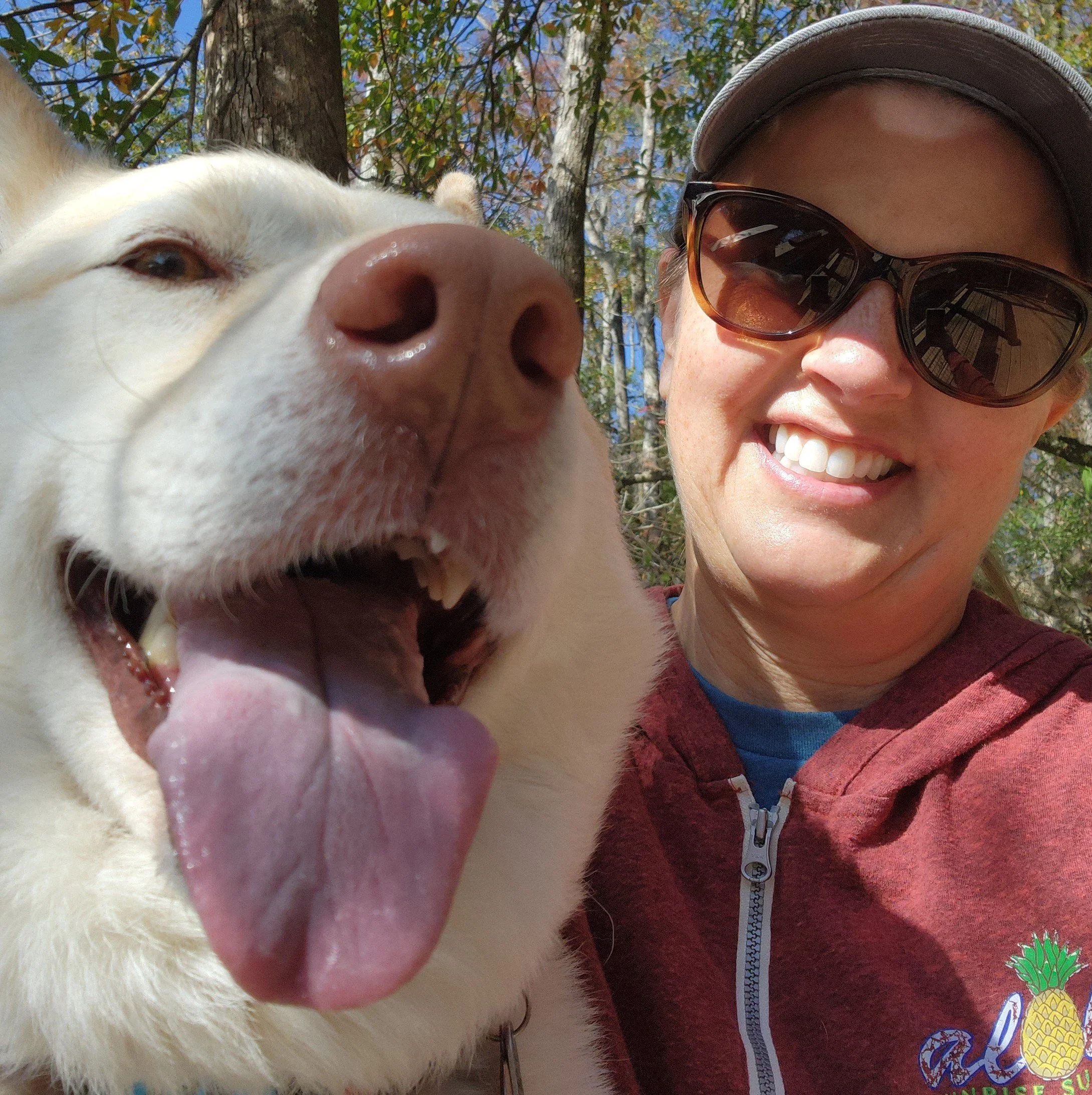BAWA: Saving the Bali Heritage Dog from Extinction
An ancient breed on an enchanted isle
Bali, a small tropical island in the Indian Ocean, is only one of the fourteen thousand islands that make up the archipelago country of Indonesia. However, its natural beauty and welcoming Hindu culture often have an impact on travelers turning globe trotters into permanent residents. One person the island enchanted is Janice Girardi.
BAWA founder Janice Girardi. Photo by BAWA.
After graduating from the University of Oregon Girardi traveled extensively in the 1970s including Bali before moving on to India and Africa. She returned to Bali in the 1980s never forgetting the island’s splendor and friendliness. Shortly after returning, she rescued her first “Bali dog.”
“When I first arrived in Bali, the indigenous dogs were healthy,” says Girardi from the island’s capital Ubud, “as they had access to fresh water and even a healthy food supply provided by families, temple offerings, or food they found in night markets.” She says when Bali’s tourism boom began in the 1990s, the dogs faced challenges with more infrastructure, cars, and people. The new century brought even greater challenges.
“The situation for the dogs – and many other animals – deteriorated in recent years with the import of non-native breeds,” she states adding that importing dogs to Bali was illegal until 2004. “It undermined the value of Bali’s indigenous dogs, prompting the establishment of backyard puppy mills and a huge increase in pet abandonment, not to mention the growing dog meat trade. As Bali became a popular tourist destination, the roaming dogs were perceived to be a nuisance, prompting cruel and abusive treatment.”
In 2007, Girardi founded the Bali Animal Welfare Association (BAWA) to tackle these issues. Through a dedicated group of volunteers and a 24/7 roaming animal ambulance, BAWA provides rehabilitation, adoption, and veterinary services to a variety of animals. Other programs include island-wide street feeding, free vaccines, and spay and neuter services. However, to understand BAWA’s mission, people first need to understand how special Bali’s dogs are.
Balinese dogs on the beach. Photo by Carrie Dow.
The Bali dog, or Bali heritage dog, is a distinct breed, indigenous to the island and genetically different from other dogs giving them scientific value. According to a 2005 study by Dr. Niels Pederson of the Veterinary Genetics Laboratory at the University of California Davis, Balinese dogs are one of the world’s oldest breeds and their DNA includes a mix of Australian dingo, the Chinese chow chow and the Akita from northern Japan. The study showed the connection between the Bali dog and the dingo providing a direct link between wild and domesticated making this breed quite ancient. Along with scientific importance, Girardi says the Balinese people have had a long reciprocal relationship with the dogs. Bali dogs have served the island for centuries protecting homes and crops and are thought to bring good luck.
“Historically, the Bali dog lived in harmony with local communities,” explains Girardi, “guarding the Island of the Gods from evil spirits, accompanying children to school, and families to market. However, the numbers of true Bali dogs has plummeted after the introduction of rabies in 2008 when it was believed a single rabid dog was imported.”
BAWA’s human education programs have been paused during the pandemic. Photo by BAWA.
The government’s answer to rabies was mass killings by strychnine poison. Girardi says that BAWA initiated a pilot program of catching, vaccinating, and releasing dogs in hopes of protecting them and people by building herd immunity. She says they vaccinated 48,000 dogs in one region of Bali reducing that area’s rabid dogs by 86 percent. That program was turned over to the provincial government in mid-2011. For unknown reasons the mass killings resumed in 2013. BAWA estimates in 2016 show the number of pure-bred Bali dogs dropped from 600,000 to around 130,000.
“Fear of rabies has changed the dynamics of the local communities’ historical relationship with the indigenous dogs,” Girardi continues. “Panic and fear followed as the number of human and dog fatalities took their toll. The image of Bali’s dogs as loyal protectors was replaced with one of ferocity and danger.”
“BAWA is working seven days a week to promote and facilitate mass vaccination to help save animal and human lives,” she contends. “We also run a ‘hot line’ telephone service for people exposed to a rabid dog or who have seen a suspicious dog on the streets so we can provide life-saving advice and services.”
Surf shop with Bali dog. Photo by Carrie Dow.
BAWA operates differently from other animal shelters because instead of a physical building, they use a network of foster home care providers. However, that network has been stretched thin due to the COVID-19 pandemic. According to communications volunteer Bonnie Hunter the organization has seen a loss of foster care providers and an increase in dog abandonment as families have lost jobs and incomes.
“Our immediate response programs such as the ambulance and street-feeding teams have increased while for most of the pandemic, other programs like sterilizations and adoptions were halted,” Hunter says.
BAWA’s free 24/7 ambulance service is unique to the organization receiving about 40 calls a day helping over a thousand animals a year. The ambulance helps all animals, including snakes and monkeys. The service consists of one van and a three-wheeled motorbike with trained staff. Animals can be treated roadside or taken to veterinary clinics if needed. BAWA not only pays for the ambulances, they also pay for additional veterinary services making it one of the organization’s most expensive programs. Donations provide the entirety of BAWA’s operating funds.
“Monthly pledges help so much to cover our operational expenses, clinic bills, and other ongoing expenses,” Girardi says. BAWA also has a humane education curriculum for island schools, but the pandemic suspended that. Girardi says of all the programs, the most pressing need is more rabies vaccines.
Hunter reiterated the need for more donations because international travel has been stopped since March of 2020. “Without tourists there are less helping hands both in terms of volunteers and fosters, and drop-in donations for BAWA. Not only are more animals in need, but there are less resources available.” (The Indonesian government will reopen Bali to fully vaccinated international travelers only starting October 2021.)
“We are hopeful that the return of tourists and (more) economic stability to Bali will bring more aid for the animals,” Hunter continues. “We hope people can come back, or if not, at least send much needed support from where they are in the world.”
“Bali dogs are smart, loyal, and great fun. Without action, we could lose the Bali heritage dog within a matter of years,” Girardi states, “and that would be a devastating loss to Bali and the world.”
For those on Bali, the animal assistance number is 081 138 9004 (24/7) or 081 2384 0133. Donations can be made via the website and are tax deductible in the US and Australia.
BAWA provides medical help to Bali dogs. Photo by BAWA.












